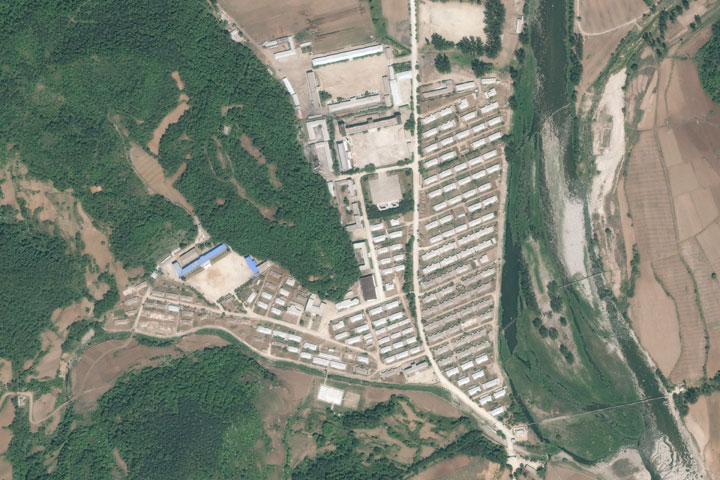U.S. President Donald Trump tweeted Friday morning that North Korean leader Kim Jong Un is a “madman who doesn’t mind starving or killing his people,” as part of an escalating war of words between the two leaders.

Kim had earlier called Trump a “mentally deranged U.S. dotard.”
There’s a lot of truth to Trump’s claim that North Korea kills and starves its own people. Human rights organizations have long documented the regime’s atrocities, often by talking to those who escaped the tightly closed country. Here’s a look at some of the major charges.
Prison camps and executions
The CIA estimates the population of North Korea to be about 25 million people. Between 80,000 and 120,000 people are detained in one of the country’s massive prison camps for political prisoners, according to a 2014 estimate by the UN. That’s not including those in regular criminal prisons or labour camps. And, it’s fewer than there used to be.
“In the political prison camps of the Democratic People’s Republic of Korea, the inmate population has been gradually eliminated through deliberate starvation, forced labour, executions, torture, rape and the denial of reproductive rights enforced through punishment, forced abortion and infanticide,” reads a UN special report on North Korea. “The commission estimates that hundreds of thousands of political prisoners have perished in these camps over the past five decades.”
In the past, according to the report, it was common for entire families to the third generation to be sent to a political prison camp for a crime committed by a family member. The UN believes this practice has become less common.

Get daily National news
WATCH: In his first address before the UN, U.S. President Donald Trump called North Korean dictator Kim Jong Un “Rocket Man” and said he would “totally destroy” them if they continue to provoke him.

Various camps are visible through satellite imagery. After studying satellite photos over time, the human rights group Amnesty International concluded that the camps are expanding.
The regime also regularly carries out public executions, sometimes for crimes as small as stealing copper from factories or watching South Korean media, according to a report from a South Korean human rights group which interviewed people who had escaped the North.
The UN thought that there seemed to have been a spike in public executions in 2013, the same year that Kim Jong Un executed his uncle, who was a politician and general, for treason.
Famine
North Korea has experienced famines in its history, and the CIA believes that it is unable to produce enough food domestically to feed its people.
Most notably, the country experienced four years of famine in the mid-1990s. Because of the country’s secretive nature, no one is sure exactly how many people died, but estimates ranged widely from a few hundred thousand to three million.
This wasn’t entirely the regime’s fault, said the UN, as there were droughts and crop failures. But government policies made things worse. “The State has consistently failed in its obligation to use the maximum of its available resources to feed those who are hungry,” reads a UN report.
Food distribution is used as “a means of control over the population” and people who are deemed more politically useful to the regime get priority over others. The regime also prioritizes military spending over feeding its people, said the report.
Although conditions have improved since the 1990s, hunger and malnutrition were still widespread in 2014 and deaths from starvation are still reported, reads the UN report.
The UN warned of a possible famine due to drought again earlier this summer, but late summer rains and a growing private food market will likely stave off acute food shortages this year.
– With files from Reuters













Comments
Want to discuss? Please read our Commenting Policy first.